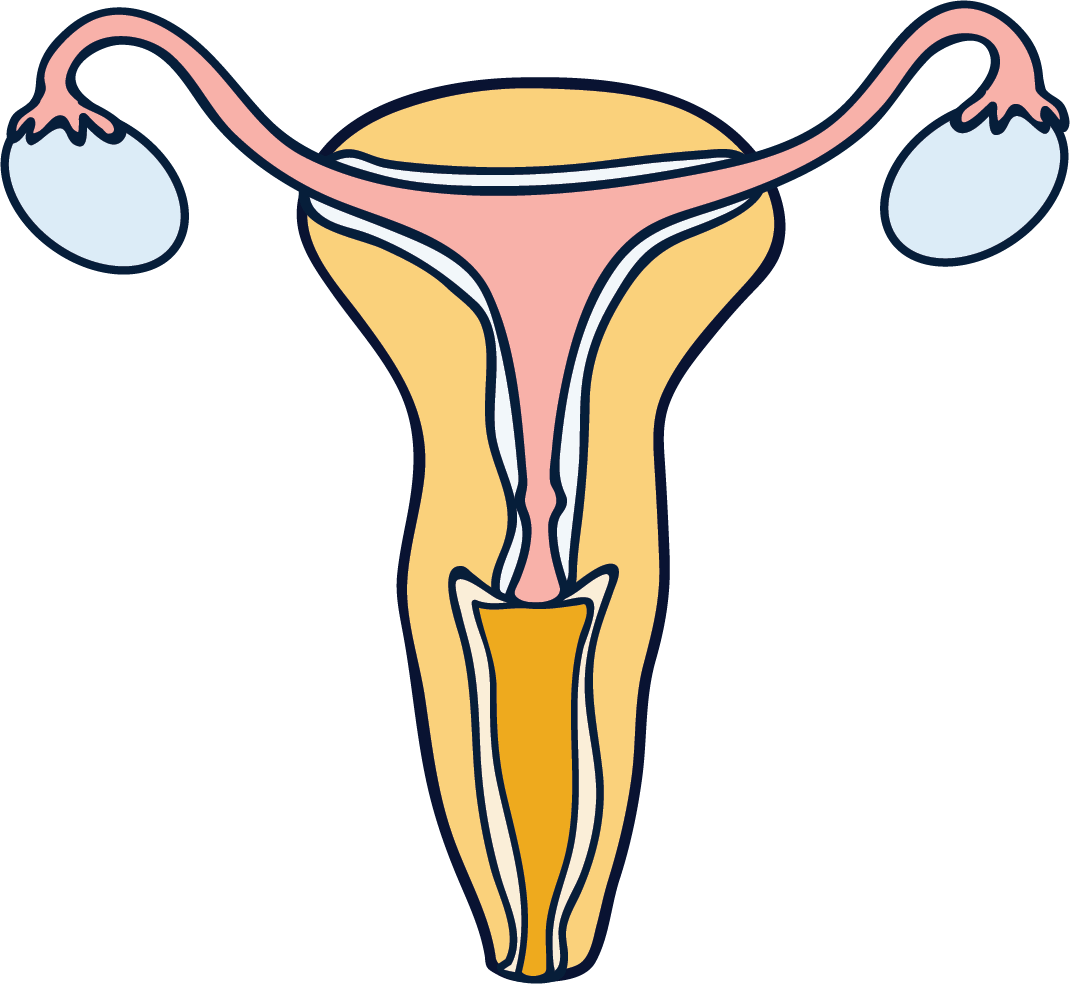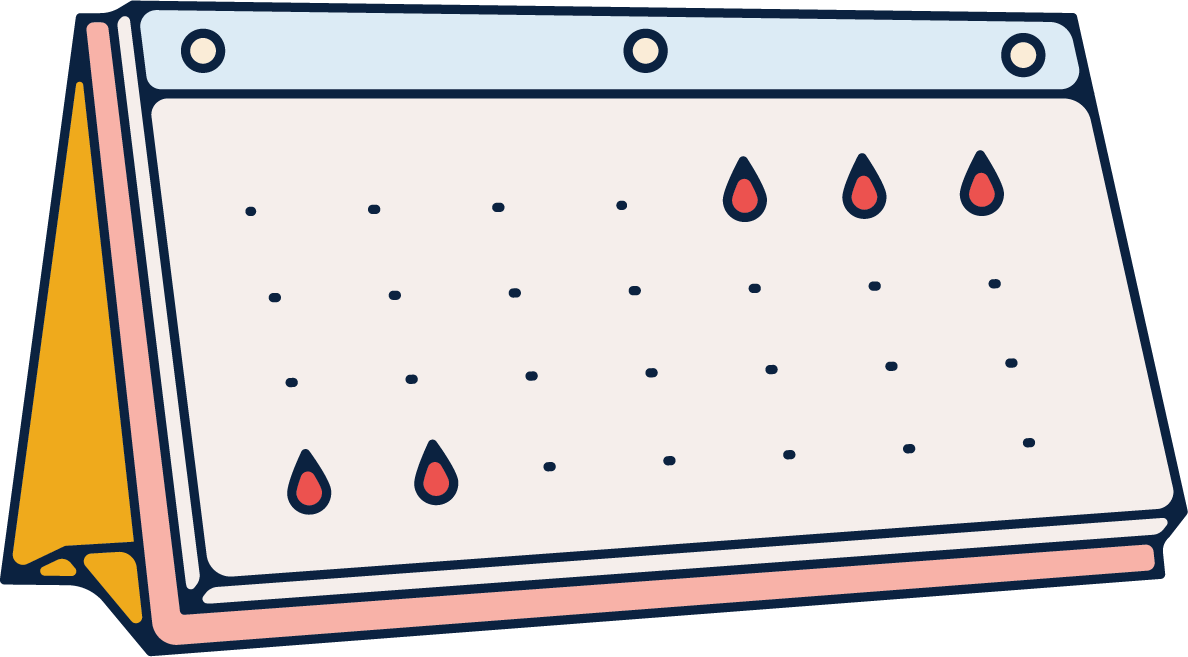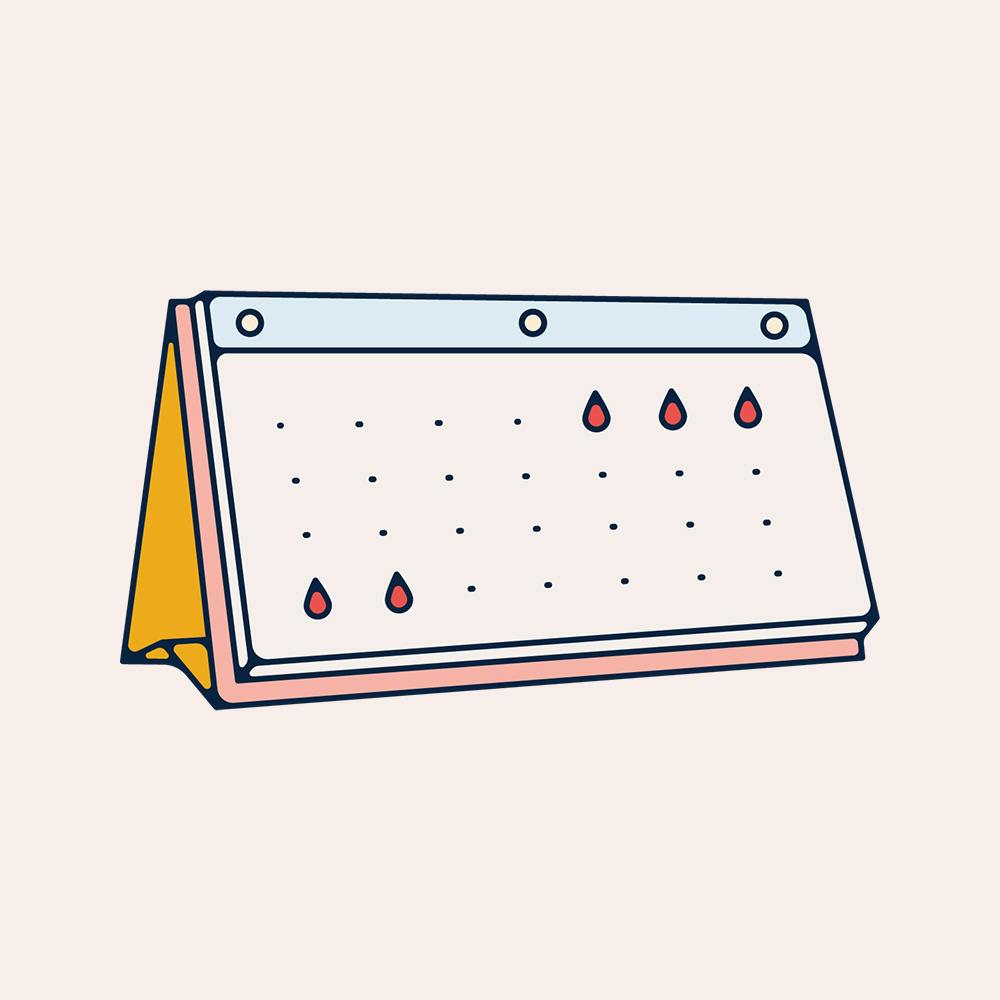Table of contents
Illustrated by Erin Rommel & Sabrina Bezerra
If you have ever found yourself wondering if you need to have a period, you're not alone.
From debilitating period pain, to conditions like endometriosis and PCOS, there are a number of reasons why a person might want to stop their periods. You might even be somebody who just doesn’t enjoy them, and that’s completely valid.
However, when cycle tracker app Clue posed the question “do we still need to menstruate?”, it left people conflicted to say the least – especially fertility and hormone coaches.
A fertility or hormone coach is somebody who supports an individual (or a couple) physically, informationally, and emotionally through their journey to ‘fixing’ their hormones and/or becoming parents. Many focus on treating period pain ‘naturally’ (without the help of hormonal contraception), balancing hormones through nutrition advice, and coaching people through unassisted conception to assisted reproductive technology, such as IVF.
There is no governing body that can certify fertility and hormone coaches, which means their credentials can vary. Some are registered nurses or licensed therapists, whilst others specialise in nutrition or holistic practices.
Fertility coaches typically sell their own groups, books, workshops and courses too. Often they argue that if our bodies do not ovulate and have the chance to produce progesterone, we cannot reap the benefits and could suffer negative effects – such as prolonged PMS symptoms and mental health issues.

“Many patients often rely on oral contraceptives that impact menstruation to mask symptoms,” says Casey Berna, MSW, Endometriosis and Infertility Advocate.
“Like with any medication, it is so important for providers to give patients informed consent, sharing with them the benefits and side effects. Patients may have side effects from oral contraceptives that can impact mental health, but making them aware of this possibility and assessing mental health before medications are started and throughout could better support patients.”
In the post’s comment section, another suggested that brands glamourise the use of drugs to stop a period without considering the risks. Not only is this a problematic narrative that shames people for a personal choice – one that in fact could improve quality of life – but these sort of claims are often unverified.
While it’s true that we can learn a lot about our health and bodies through our cycle, this excludes a huge percentage of people whose periods have a great impact on both their mental and physical health.
“Ideally patients are empowered with knowledge and education surrounding their health challenges and access to all available treatments so they can make the best decisions for their bodies,” says Berna.
One period coach’s website opens with the question “would you like to experience your menstrual cycle as the empowering gift it can be?”. For many people, no amount of supplements, dietary changes or positive thinking will make periods “empowering”. This type of conversation is also often tailored towards one very specific experience: usually one with a regular cycle, little to no pain, and symptoms with no further issues.

Heather C. Guidone, BCPA, and Surgical Program Director at The Center for Endometriosis Care agrees that menstruation is ‘the fifth vital sign’ but also states that “it’s all about empowering the person to make their own choices regarding their own body”.
“For example, the choice may look very different to a person with pregnancy goals vs. someone else who has a disease or condition. I wholeheartedly affirm that how a person chooses to experience periods – or not – is up to them.”
It has taken us a very long time to get a place where it’s somewhat acceptable to discuss menstruation, and there is still so much work to be done to encourage people to have agency over their bodies. If we continue to uphold this rigid idea that people should experience periods a certain way, we’d be doing a disservice to many.
Shona Louise, 23, tells Daye: “As a disabled person I’ve never been able to access information specific to me about managing my periods, until I learnt that I could in fact stop them completely with the contraceptive pill.”
“Over the years, I have had GPs question why I remain on the pill when I don’t require it for birth control. A lot of people don’t seem to understand that even a fairly average period can be difficult to manage as a disabled person, so I keep having to justify my decision”.
“
Even a fairly average period can be difficult to manage as a disabled person.
As somebody who struggled for years to get a diagnosis for PCOS, I know firsthand that the idea of experiencing a period ‘naturally’ leads to people actively not seeking medical treatment they may need.
The narrative that paints periods as an empowering experience for all ignores the very unfortunate reality a large percentage of the population face. For many of us, periods are a lot more than just blip in the month. They can impact every part of our life and be tied to issues such as PCOS, endometriosis, adhesions and infertility.
By continuing this inaccurate portrayal we are ignoring debilitating pain, symptoms, and potential diagnoses. We also risk normalising gynae pain. The 2020 APPG on Endometriosis Inquiry reported that the average diagnosis time for endometriosis (8 in case you were wondering) hasn't improved in the last decade. When so many people suffer from reproductive health issues, implying they should still have a period is both reductive and potentially dangerous.
I don’t doubt there are coaches out there doing great, empowering work and encouraging many to get in touch with their cycles. But there is space for concern over the flippancy with which we can sometimes treat hormonal medication, while also addressing the rise of pseudoscience and how it stops people from seeking professional help.
Adapting your language to be more inclusive does not just mean including people of all genders, it should also consider the variety of experiences people who menstruate have. “Early education is key so that people with periods know when something may be wrong, how to seek help, and what the options are,” says Guidone.
“Having an informed discussion is critical to making an educated and empowered decision about one’s health and bodily autonomy. As long as they are given all the facts necessary, how someone chooses to experience their cycles is up to them”.






